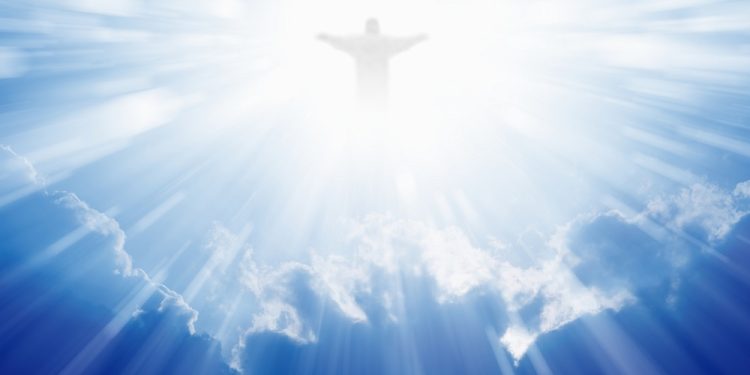
Easter Monday
Easter Monday is a holiday that falls on the day after Easter Sunday and is known by several different names around the world, such as Dyngus Day, Bright Monday, Wet Monday, and Renewal Monday.
It’s a holiday that’s specifically observed by several different religious denominations around the world, especially in Roman Catholic and Greek Orthodoxy denominations; it’s not a holiday that’s mentioned in the Holy Bible. Even so, its observance goes all the way back to the Middle Ages when it was seen as the conclusion of the period between Christ’s crucifixion and resurrection.
In many cultures, it’s a part of Holy Week, while in others it’s seen as falling outside of that tradition. For example, in the United States, this day isn’t a federal holiday, even though it may be observed by some denominations as a part of the Easter tradition.
The History Of Easter Monday
Before we can begin any serious discussion of this holiday, we first have to talk about the history of its parent holiday: Easter. Although Easter is a holiday that now celebrates the Resurrection of Jesus Christ on the third day after his Crucifixion, celebrations of this holiday are actually much older.
Many historians believe that even the name “Easter” derives from the German word “Ostern.” In the 8th century, St. Bede believed that it derived from “Eostrae,” the Anglo-Saxon goddess of fertility and spring.
Easter celebrations were generally taken from old German pagan celebrations and branded with Christianity — much in the same way that Christmas is believed to have been rebranded to get pagans to turn from the old gods to Christianity.
In early Christianity, there was a major controversy concerning the date on which the Resurrection of Jesus Christ was to be observed. This controversy was known as the Paschal Controversies, and it wouldn’t be resolved until the 8th century.
Christians in Asia Minor would observe the day of Crucifixion on the same day that Jews would celebrate Passover. The Resurrection was then observed two days later without regard to what day of the week it was. In the West, the Resurrection was celebrated on Sunday.
In 325, the Council of Nicaea decreed that Easter should always be observed on the first Sunday following the first full moon after the Spring Equinox. That means that any Sunday between March 22nd and April 25th could be used for Easter Sunday.
In Eastern Orthodox traditions, the calculation used to celebrate Easter is a little bit different. It’s based on the Julian instead of the Gregorian calendar, and this results in Orthodox Easter usually happening at a later date than the Easter celebrated by Roman Catholics and Protestants.
Orthodox tradition also prevents Easter from being observed before or during Passover. Now that we’ve laid a foundation for this holiday, let’s turn our attention to Easter Monday. The name for this holiday was first used during the 15th century, but the observance of celebrating the Monday after Easter is one that goes back even further than that.
In some traditions, Easter Monday is an important religious holiday, while in others it’s not even a significant holiday at all. Easter Monday isn’t a federal holiday in the United States, but it is in many other countries around the world.
Some Fun Facts About Easter Monday Around The World
As we were researching this holiday, we decided that what this article really needed was a section detailing some of the lesser-known things about Easter Monday that people may not know about. That’s why we decided to compile the following list. We hope the below factoids contain information that is not only entertaining but also informative as well.
- In Australia, Easter Monday is a public holiday and a day that’s celebrated with various sporting events.
- In Ireland, Easter Monday is used as a remembrance day for those who died during the 1916 Easter Rising.
- In Germany, Easter Monday is a day of Holy Obligation.
Observing Easter Monday
It’s almost impossible to list all of the Easter Monday celebrations that occur all over the world. It all varies depending on the country, as well as the religious tradition being observed. Some common events that happen on this holiday include religious services, Easter egg races, water fights, processions, family gatherings, and picnics. Some European cultures also feature Easter Markets.
In Obertraun, Austria, there’s a tradition called Oarradeln, known as Egg Cycling in English. This occurs on the night of Easter Monday and features locals who like to kidnap anything with tires on it and place it somewhere else. Yes, that means that a bike parked on the street might be moved to a garage roof the next day or placed under a nearby street lamp.
In the U.S., Easter Monday isn’t a federal holiday, so banks and shops remain open and most people still have to report to work. However, that doesn’t mean that many people don’t take the day off, giving themselves an extra-long holiday weekend.
In fact, Easter Monday is the second-most popular day for people to “call in sick.” What’s the holiday when most people call in sick? Well, that would be the day after Christmas, of course.
Regardless of whether a person uses this holiday to recuperate from Easter, or whether it’s observed as an important part of Holy Week, it’s a holiday that’s observed by people all over the world.
Everyone observing this holiday can take the time to wish everyone a happy Easter Monday by using the hashtag #EasterMonday on social media. This day is an important spring holiday that’s been observed for centuries and will continue to be observed well into the future.








